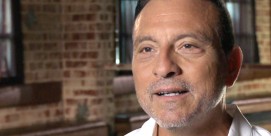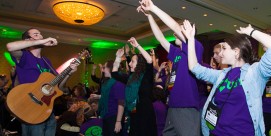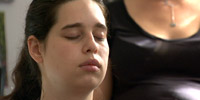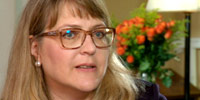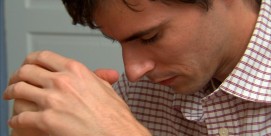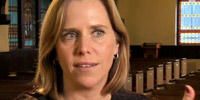Tag: religiously unaffiliated
“You have a generation that is saying we are tapping out of religion in many ways. But what they are not saying is that we are tapping out of a serious search for meaning in life,” says Erwin McManus, pastor and founder of MOSAIC church in Los Angeles. “In fact, if anything there is an incredible and profound hunger in millennials saying if there is something beyond this life I want to connect to it.” More
As it celebrates its 100th anniversary, one of the main branches of Judaism faces challenges as membership declines and leaders look for ways to expand outreach, especially to younger Jews. More
What effect will the fast-growing number of American adults who say they have no religious affiliation have on traditional organized religion? More
“I think that people who are leaving church, or people who call themselves spiritual but not religious, are raising really significant questions about faith, about community life and about the future of religion that religious leaders should pay more attention to.” More
How will the Democratic Party appeal to religious voters without alienating the rising numbers of religiously unaffiliated voters? More
“Candidates do often benefit from talking about their personal faith, but once that becomes politicized it can create some real problems for them, so they tend to stick to other sets of issues.” Watch more of our interview with University … More
“In our data for 2012 we are finding that the religiously unaffiliated outnumber white mainline Protestants, white Catholics, and even black Protestants among Democratic and Democratic-leaning registered voters.” More
“Religion is important. Being spiritual is important. What’s not as important is to join and to go every week,” says Kellen McClure when asked about churches and their worship services. He is one of the fast-rising number of Americans who describe their religion as “nothing in particular” or “none of the above” when surveyed by opinion researchers. More
“The religiously unaffiliated population is not wholly secular. It is wrong to think of them as consisting entirely of non-believers, for example. We know that many, if not most of them say they do believe in God,” says Greg Smith, senior researcher at the Pew Forum on Religion & Public Life. More
A mature religious faith,” says Rev. Lillian Daniel, is “practiced in community over time.” It is “reasonable, rigorous, real, grounded in tradition, and centered in worship.” More

